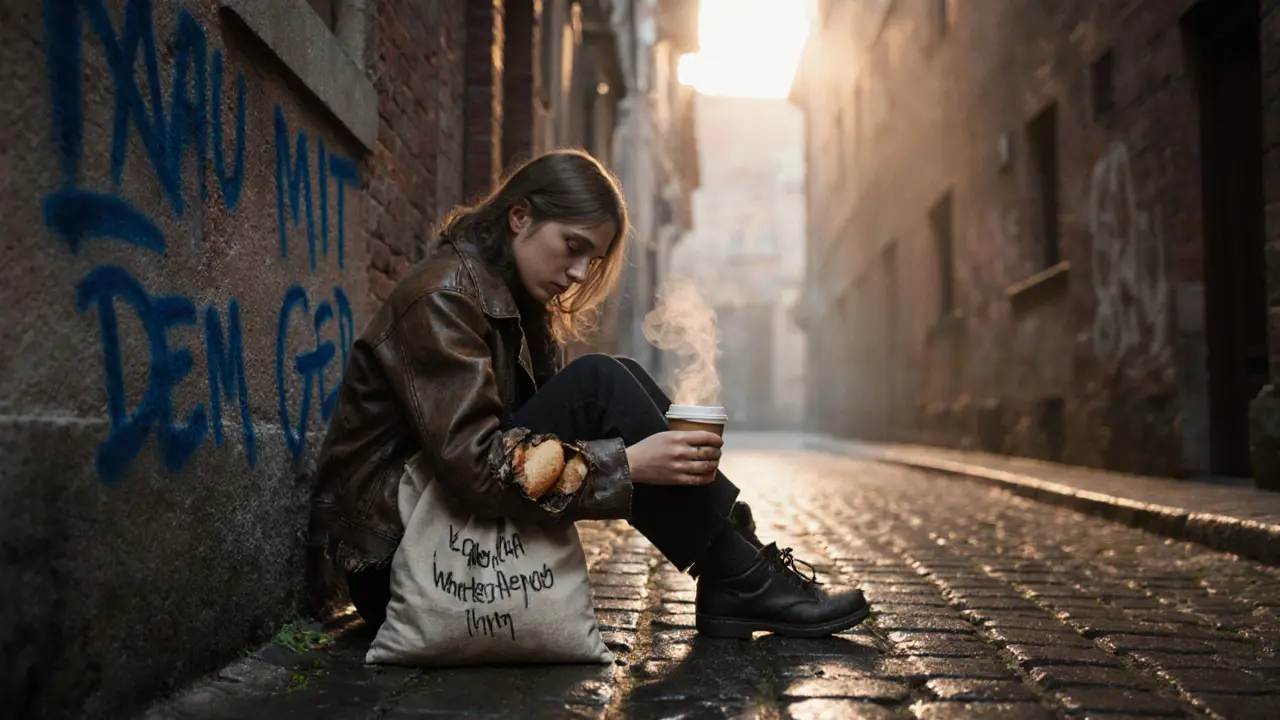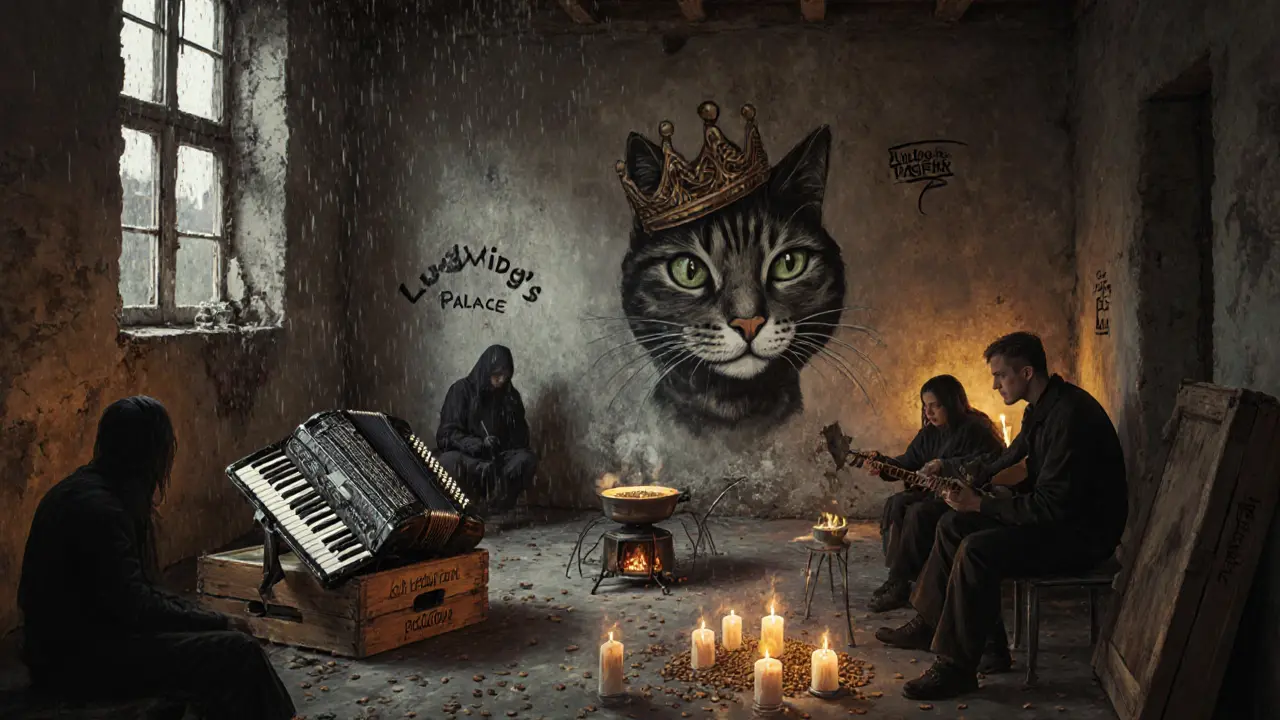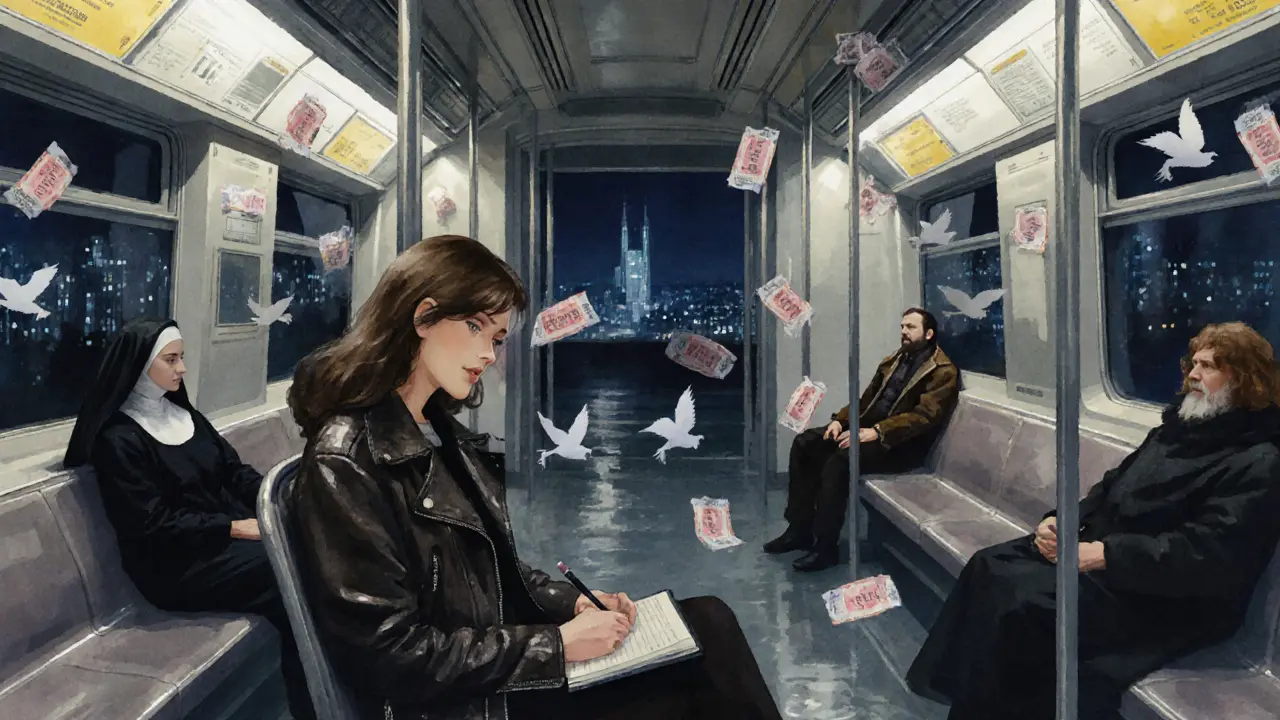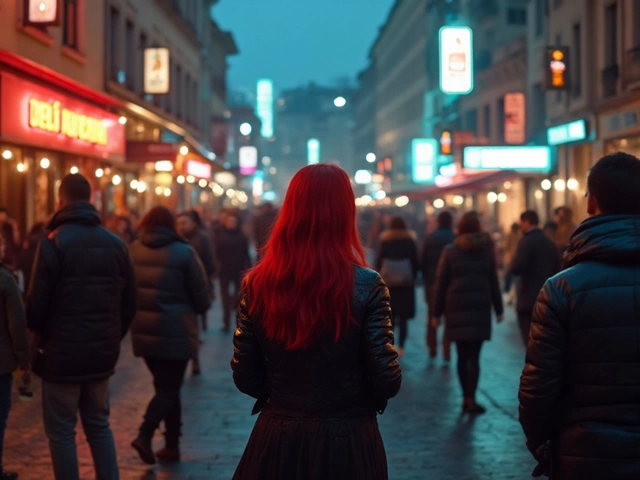Exploring Munich Through Dirty Tina’s Eyes

- Maximilian Von Stauffenberg
- 16 November 2025
- 0 Comments
Dirty Tina didn’t come to Munich for the beer halls or the Christmas markets. She came because the city smells like wet pavement after rain, because the U-Bahn rattles like a tired old man, and because no one looks at you twice when you’re wearing a leather jacket with holes in the elbows. She’s not a tour guide. She’s not a blogger. She’s just a woman who’s been sleeping on couches and train stations since 2019, and she knows Munich better than most people who were born here.
Where the Postcards Don’t Go
You won’t find Dirty Tina at the Marienplatz clock. She’s in the back alleys of Schwabing, where the graffiti still says ‘Raus mit dem Geld’ - Out with the money - in faded blue spray paint. That’s where she buys her coffee from a guy named Klaus who only takes cash and asks if you’re still alive every time she shows up. He doesn’t know her real name. No one does. She’s Dirty Tina to everyone who’s ever shared a cigarette with her on the steps of the Englischer Garten.
She’ll tell you the real history of Munich isn’t in the museums. It’s in the abandoned factory near the Isar River that used to make Nazi-era radios, now turned into a squat with a mural of a cat wearing a crown. The cat’s name is Ludwig. The people who live there call it ‘Ludwig’s Palace.’ They don’t pay rent. They pay in music. One night, she played a broken accordion for two hours while someone else cooked lentils on a camping stove. No one left. No one needed to.
The Underground Transit Map
Most tourists think the U-Bahn is just a way to get from the airport to the Hauptbahnhof. Dirty Tina knows it’s a social network on wheels. The U6 line? That’s where the poets ride. The U4? That’s where the drug dealers and the nuns sit side by side, both pretending not to notice each other. She once saw a woman in a fur coat give a homeless man her entire month’s pension in coins - then got off at Odeonsplatz and walked into a five-star hotel like nothing happened.
She doesn’t have a monthly pass. She rides the S-Bahn with a single ticket, bought from the machine that doesn’t take cards. She knows which stations have working toilets - the one at Pasing, the one at Garching, the one under the bridge near Freimann. She knows which drivers will let you ride for free if you smile and say ‘Guten Morgen’ in a voice that sounds like you mean it. She’s not begging. She’s negotiating.

Food That Doesn’t Cost a Euro
Dirty Tina eats like a queen. Not because she’s rich. Because she’s learned how to turn Munich’s waste into meals. Every Friday, the bakery on Klenzestraße throws out 30 loaves of day-old rye. She’s there at 7:55 p.m., holding a cloth bag and a smile. The owner, Frau Weber, doesn’t ask questions. She just hands over the bread. Sometimes she adds a jar of jam. Once, she slipped in a chocolate bar.
She’ll pick up bruised apples from the fruit stand near the Viktualienmarkt. She’ll take the day-old pastries from the Italian deli that throws them out at closing. She calls it ‘Munich’s secret buffet.’ She doesn’t steal. She takes what’s already being thrown away. And she shares. She’ll give half her bread to the guy who sleeps under the bridge near Ostbahnhof. He calls her ‘Tina the Light.’ She doesn’t know why.
The People Who Don’t Exist on Paper
Munich has 1.5 million residents. But Dirty Tina knows the other 30,000 - the ones without addresses, without IDs, without bank accounts. There’s Marco, who paints portraits of strangers for a bottle of wine. There’s Lina, who sings opera in the subway tunnels because she says the acoustics are better than at the Bavarian State Opera. There’s the old man who fixes radios with duct tape and sells them for €5 outside the Hauptbahnhof. He says he’s from Prague. No one checks.
Dirty Tina has a notebook. Not a phone. Not a blog. A real notebook with torn pages and ink smudges. She writes down names. Dates. Stories. ‘Hans, 68, lost his wife in 2021. Now he talks to pigeons. Says they answer.’ ‘Sofia, 22, ran away from a foster home. Now she dances on rooftops. Says the city sings back.’ She doesn’t post it. She doesn’t sell it. She just keeps it. Sometimes, when it rains, she sits under a bus stop and reads it out loud to no one.

Why Munich Lets Her Stay
She’s been arrested three times. Once for sleeping in a park. Once for ‘loitering’ near a church. Once for ‘disturbing the peace’ - she was humming a lullaby while waiting for a bus at 3 a.m. Each time, they let her go. No charges. No fines. Just a warning: ‘Don’t do it again.’
Why? Because Munich isn’t like Berlin. It’s not like Paris. It’s a city that still believes in quiet tolerance. The police know her. The shopkeepers know her. The librarians at the Stadtbibliothek let her use the computers to look up her mother’s name - she hasn’t heard from her since 2017. No one asks why. No one expects her to explain.
She doesn’t want a home. She doesn’t want a job. She wants to keep walking. To keep listening. To keep being the person who notices the old woman who feeds the ducks every morning with a single crust of bread. Who smiles at the boy who plays the violin on the bridge even though his strings are frayed. Who knows that the best view of the Alps isn’t from the beer garden - it’s from the rooftop of the abandoned laundry on Klenzestraße, where the wind smells like snow and the city below looks like a painting someone forgot to finish.
What She Leaves Behind
Dirty Tina doesn’t leave footprints. She leaves stories. A stranger found her notebook on a bench near the Deutsches Museum last winter. Inside were 87 names, 12 drawings of cats, and one sentence written in pencil: ‘If you’re reading this, you’re still here. That’s enough.’
No one reported it. No one tried to trace her. The notebook disappeared. But now, every month, someone leaves a new notebook on that same bench. Sometimes it’s filled with poems. Sometimes with grocery lists. Sometimes with nothing but a single coffee stain and the words ‘For Tina.’
She doesn’t know about them. She probably never will. But if you ever see a woman with a leather jacket and a tired smile, walking slowly past the flower market with a bag of day-old bread - don’t look away. Don’t call the cops. Don’t ask her name.
Just say ‘Guten Tag.’
And if she smiles back? You’ve already seen Munich.
Who is Dirty Tina?
Dirty Tina is a street observer and unofficial chronicler of Munich’s hidden lives. She doesn’t have a fixed address, a job, or a known real name. She’s known for her deep, quiet connection to the city’s forgotten corners - the squats, the abandoned buildings, the people who live outside the system. She doesn’t seek attention, but those who’ve shared a meal or a train ride with her remember her.
Is Dirty Tina a real person?
Yes. Dirty Tina is not a fictional character. She’s a real woman who has been living on the margins of Munich since 2019. Her existence is documented by local residents, shopkeepers, and occasional photos taken by strangers who’ve encountered her. Her name is not officially recorded, and she avoids media attention - but her presence is felt in the city’s underground networks.
Why does Munich tolerate her?
Munich has a long-standing cultural tolerance for quiet, non-disruptive outsiders. Unlike other German cities, it rarely enforces strict rules against homelessness if there’s no public disturbance. Dirty Tina doesn’t beg, steal, or cause trouble. She observes, shares, and moves quietly. That’s enough for most people - including police and shop owners - to leave her be.
Where can you find Dirty Tina in Munich?
She’s most often seen near the Englischer Garten, the Isar River banks, the train stations at Pasing and Ostbahnhof, and the back alleys of Schwabing. She walks the same routes daily, especially in the early morning and late evening. She avoids tourist zones and never stays in one place too long. You won’t find her on maps - only in stories.
Does she have a social media presence?
No. Dirty Tina doesn’t use smartphones, social media, or the internet. She writes in a physical notebook. She doesn’t post photos. She doesn’t take selfies. Her story exists only in the memories of those who’ve met her and in the notebooks left on benches around the city.
Next time you’re in Munich, skip the guided tours. Skip the guided tours. Walk past the beer halls. Turn down the narrow street behind the church. Look for the woman with the leather jacket and the quiet eyes. She might not say much. But if you sit beside her for five minutes - and don’t ask her name - you’ll understand why this city still holds its breath when she walks by.



